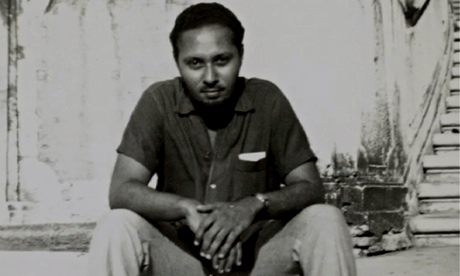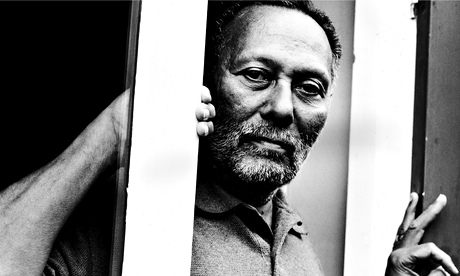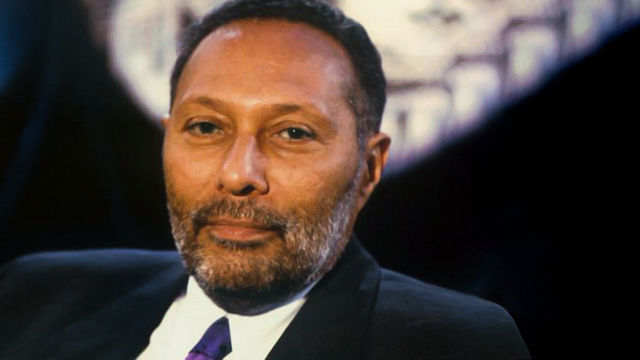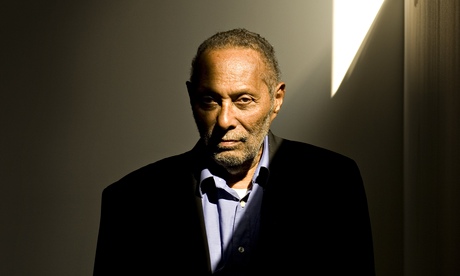__________________________
![]()
Monday 10 February 2014
Stuart Hall obituary
by David Morley and Bill Schwarz
“The very notion of Great Britain’s ‘greatness’ is bound up with empire,” Stuart Hall once wrote. “Euro-scepticism and Little Englander nationalism could hardly survive if people understood whose sugar flowed through English blood and rotted English teeth.”
For the Jamaican-born intellectual, who was one of the Windrush generation, – the first large-scale immigration of West Indians to the capital after world war two – that rottenness was unmissable. Hall came to that rotten land with its in-part slave-generated wealth from Kingston in 1951 as a Rhodes scholar to study at Oxford. “Three months at Oxford persuaded me that it was not my home,” he told the Guardian in 2012. “I’m not English and I never will be. The life I have lived is one of partial displacement. I came to England as a means of escape, and it was a failure.”
A failure? You might well be forgiven for thinking otherwise. Stuart Hall gave up his PhD on Henry James and instead, in 1958, became the founding editor of the New Left Review, which opened a debate about the things that hadn’t been broached in complacent British academia in the post-war period – immigration, the politics of identity and multicultural society. He became, with EP Thompson, Ralph Miliband and Raymond Williams, a leading figure of Britain’s New Left, and one of the very few among their number who wasn’t white.
In Birmingham in 1964, along with two of Britain’s leading radical postwar thinkers, Williams and Richard Hoggart, Hall established the first cultural studies programme at a British university. Thereafter he became very nearly synonymous with this multidisciplinary field which insisted that mass or popular culture was worth studying if we really wanted to understand what was wrong with Britain in particular and capitalism in general.
In 1978, he was one of the authors of the book Policing the Crisis: Mugging, the State and Law and Order, a belated if bravura attempt to address what Hall called the “critical questions of race, the politics of race, the resistance to racism” and to tackle how the British state created a racist panic directed at young black men. It depicted those young men in Marxist terms, as a “super-exploited sub-proletariat”. Here, and elsewhere, Hall did what his friend and colleague Paul Gilroy said in afestschrift: “Stuart Hall’s work has helped us to appreciate that we have been living through a profound transformation in the way that ‘race’ is understood and acted upon.”
Thereafter, he wrote and lectured extensively on the subjects of race, identity, social change in Britain and our shifting role in the world. He became celebrated as the “godfather of multiculturalism”. He made many TV appearances especially late-night on BBC2, becoming as the Observer put it, “the progressive insomniacs’ icon” and even the Telegraph praised him as a “dapper, assured figure with an agreeably forthright manner”.

Stuart Hall in a still from The Stuart Hall Project Photograph: Smoking Dogs Films
He was recently celebrated only last September by a lovely, respectful documentary by John Akomfrah called The Stuart Hall Project, which Peter Bradshaw in the Guardian described as “a deeply considered project that reconsiders culture and identity for those excluded from the circles of power through race, gender and class”. Those words, too, were true of Stuart Hall’s professional career.
Admittedly, the above narrative erases a great deal, not least what Hall called “the black person’s burden”. “I’m expected to speak for the entire black race on all questions theoretical, critical, etc,” he said once, “and sometimes for British politics, as well as for cultural studies. This is what is known as the black person’s burden.” Sometimes, understandably, he wanted to remove that burden, but not often.
Nor does that narrative properly question the headline notion that Hall was the godfather of multiculturalism. For his part, Hall always argued that in Britain, at least, any rapprochement between the races, any easing of racial tension, wasn’t very much due to the work he did in academia, but rather “it was more what I think of as a multicultural drift, just having them [people from other cultures] around, they weren’t going to eat you, they didn’t have tails”.
Nor does it do justice to how cultural studies was a vexed field, derided by traditionalist critics such as Harold Bloom as an intellectually irresponsible imposture, and riven from within by theoretical differences – struggles to deal with tricky things like Althusserian Marxism, Foucauldian power theory, Deleuze and Guattari’s schizoanalysis, post-Gramscian hegemony theory and that abiding threat to patriarchal power bases in universities,feminism. Hall, at least, could write about the impact of the last of these with superbly mordant self-criticism. In his paper Cultural Studies and its Theoretical Legacies, Hall recalls the impact of feminist thought on cultural studies. “As the thief in the night, it broke in; interrupted, made an unseemly noise, seized the time, crapped on the table of cultural studies … Now that’s where I really discovered about the gendered nature of power. Long, long after I was able to pronounce the words, I encountered the reality of Foucault’s profound insight into the individual reciprocity of knowledge and power. Talking about giving up power is a radically different experience from being silenced.”
Reading about getting shut up was one thing, Hall realised, having it happen to you something else. But for all that one gets the sense that Hall, who after all knew a little about exclusion, was also capable of appreciating a bracingly valuable power shift. Cultural studies, as practised by Hall, was never a smug academic activity, but one that often involved facing awkward truths about oneself and how one was deeply, painfully implicated in existing power structures.

Stuart Hall. Photograph: Eamonn McCabe
But if there was failure, it was because Hall could not escape who he was, certainly not by coming to Britain, and couldn’t shed that above-mentioned burden for long. That comes out clearly in the chastening conclusion to an interview, by Tim Adams in the Observer seven years ago, when he said: “I am not a liberal Englishman like you. In the back of my head are things that can’t be in the back of your head. That part of me comes from a plantation, when you owned me. I was brought up to understand you, I read your literature, I knew Daffodils off by heart before I knew the name of a Jamaican flower. You don’t lose that, it becomes stronger.”
Cultural studies as practised in Birmingham was in part inspired by the Italian Marxist Antonio Gramsci, who wondered why working people would vote to cede control to corporations and see their own rights and freedoms curtailed? Culture, Hall and his colleagues recognised, was a key instrument of political and social control. For instance, Hall argued that mainstream mass media in the US effectively proselytised for the notion that democratic pluralism was a reality rather than a façade, arguing for “the pretence that society is held together by common norms, including equal opportunity, respect for diversity, one person-one vote, individual rights and rule of law”.
Not to consider how culture worked in such a capitalist societies meant, Gramsci thought and the likes of Hall agreed, was an abnegation of a politically committed intellectual’s responsibility. Stuart Hall argued his intellectual life was certainly an argument with neo-liberalism, but also an argument with any kind of Marxism that contended it was all about the economy, stupid.
But it’s 12 years since the Birmingham Centre for Contemporary Cultural Studies was closed. Today, there is a project to celebrate the legacy of the centre that Hall helped found 50 years ago.
But what is its legacy? Hall was hard-headed in his assessment:
“Against the urgency of people dying in the streets, what in God’s name is the point of cultural studies?… At that point, I think anybody who is into cultural studies seriously as an intellectual practice, must feel, on their pulse, its ephemerality, its insubstantiality, how little it registers, how little we’ve been able to change anything or get anybody to do anything. If you don’t feel that as one tension in the work that you are doing, theory has let you off the hook.”
But, more importantly, what of his hopes for that derided thing, multiculturalism in Britain? “It is a more genuine multicultural society than New York,” he said in one interview, “where there are not the same black/white worlds. And what gives me hope is that there are still many, many people here who try to live it that way.”
Perhaps, then, Britain wasn’t quite as rotten as it initially seemed to the Jamaican intellectual? The 2011 riots made Hall sceptical. “Some kids at the bottom of the ladder are deeply alienated, they’ve taken the message of Thatcherism and Blairism and the coalition: what you have to do is hustle,” he said last year. “Because nobody’s going to help you. And they’ve got no organised political voice, no organised black voice and no sympathetic voice on the left.”
Hall regularly quoted with approval Gramsci’s remark about the pessimism of the intellect, optimism of the spirit. By the end of his life, though, one might well think, Stuart Hall’s optimistic spirit had been tested to its limits.


